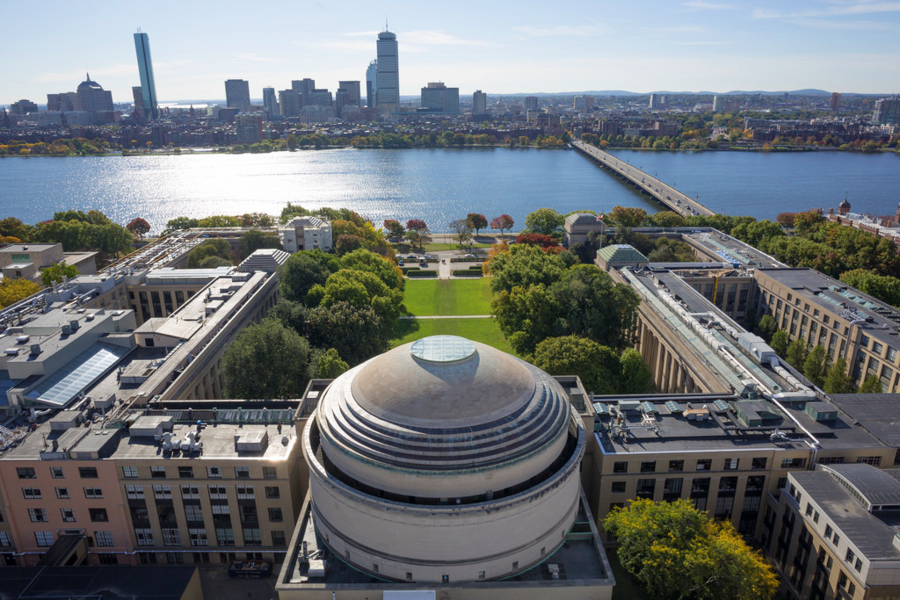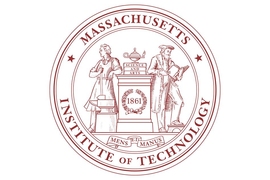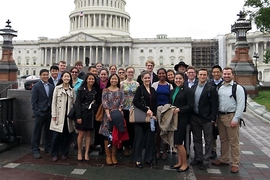Both houses of Congress have now passed the Tax Cuts and Jobs Act of 2017, and President Trump is expected to sign it into law soon. The bill will make significant changes to federal tax law. MIT officials have closely tracked the bill, and its likely impacts on Institute students, faculty and staff, since it was first proposed last month — and have engaged with elected representatives to ensure that these representatives understand how the legislation will affect higher education and research in the United States.
Israel Ruiz, MIT’s executive vice president and treasurer, and Maria Zuber, vice president for research and the E.A. Griswold Professor of Geophysics, spoke with MIT News about the new law’s foreseeable impacts on members of the MIT community.
Q: Overall, what does this legislation mean for MIT?
Ruiz: Thanks to great efforts by MIT students, staff, alumni, and friends, the final bill is less damaging to the mission of MIT than the version passed last month by the House. Provisions that would have been particularly harmful to MIT and members of our community, such as new income taxes on many of our graduate students and on employees’ tuition assistance, are not in the bill just passed by Congress.
One of the most harmful aspects of the initial bill would have reclassified as taxable income graduate students’ tuition remission — essentially, contributions from MIT and others to offset the cost of tuition for graduate students who work as teaching and research assistants. Our analysis found that this provision would have increased income taxes for approximately half of MIT’s 7,000 graduate students.
Other earlier provisions detrimental to MIT or members of our community have been struck from the final bill. These include a proposed elimination of the deduction for interest on student loans and the repeal or scaling back of certain education credits.
We are relieved that all of these harmful provisions were ultimately excluded from the bill that has now been passed by Congress. However, the legislation still includes provisions that will hurt MIT.
This new law will increase the amount of tax MIT pays to the federal government. The dollars lost to this tax increase will affect MIT’s ability to educate the next generation of society’s leaders, to support research breakthroughs, and to power economic growth through the many startups and far-reaching technological innovations that come out of MIT.
The law also represents a fundamental rethinking of the status of our nation’s educational institutions, by levying a new tax on a small number of private universities despite our tax-exempt status.
Q: How did MIT’s leaders, students, alumni, and friends engage in this process?
Zuber: I’ve spent several recent days on Capitol Hill, informing elected officials on how university endowments are structured and used by institutions, and on how investments made to support education and research benefit the nation. In my meetings in Washington, I have emphasized that America’s top-notch universities, its best-in-the-world scientific enterprise, and its longstanding technological leadership have played, and continue to play, an essential role in keeping our nation’s economy growing and making our nation more prosperous and secure. Tax policies that hurt our universities hurt all Americans.
Of course, I’m not MIT’s only voice in Washington: President Reif was in contact with people both inside and outside the government who could influence the final shape of the bill. And the MIT Washington Office has been working on this issue virtually nonstop for weeks now.
The leaders of our Graduate Student Council [GSC] worked with Chancellor Cynthia Barnhart, Vice Chancellor Ian Waitz, Vice President and General Counsel Mark DiVincenzo, and MIT Washington Office Director David Goldston as our students mobilized and advocated against the provision — ultimately removed from the bill now passed by Congress — that would have added onerous new taxes for many of our graduate students. Many MIT students joined in conveying to Congress just how devastating and shortsighted this proposal was, by participating in GSC-sponsored phone banks, authoring op-eds, engaging in media interviews, and traveling to Washington to meet with elected officials. They made a compelling case for how, as researchers and teachers, MIT’s graduate students contribute to making a better world by driving innovation, discovery, and economic growth.
Several MIT offices — including not only the Washington Office and Chancellor’s office, but also the Office of the Vice President for Finance and the Office of the General Counsel — have been working together since early November to analyze the provisions of the two bills, assess the implications of the provisions, and express our concerns strategically in D.C. In addition, MIT is working closely with the Association of American Universities, with other university groups, and with our peer institutions — all of whom have been active in building Congressional opposition to these tax proposals.
Finally, we have engaged throughout this process with MIT’s alumni, friends, and members of the MIT Corporation to help communicate the impact of this legislation.
Q: How will the new tax law immediately affect MIT?
Ruiz: We are still studying the final bill. With the taxation of graduate students’ tuition remission gone, the most onerous provision for MIT will be an “excise tax” — a new type of income tax imposed on a very small number of colleges and universities — equal to 1.4 percent of MIT’s annual investment income. The new law will impose the tax only on private academic institutions with at least 500 students and an endowment valued at more than $500,000 per student — affecting, as we understand, about 32 colleges and universities nationwide, including MIT.
It’s important to understand that MIT’s endowment is not a bank account that we can simply tap as we need money: Such an approach would be a bit like raiding your retirement savings to buy groceries or pay your rent. Instead, investment earnings from MIT’s endowment — built through the generosity of alumni and donors over the past 150-some years — support current and future generations of MIT scholars with the resources needed to advance knowledge, research, and innovation.
Indeed, income from MIT’s investments provided 31 percent of total MIT campus revenues last fiscal year: These funds underpin all campus activities, including education, research, renewal of our facilities, faculty work, and student financial aid. On this last point, our endowment allows MIT to be generous in providing money for student scholarships, financial aid, and fellowships. This year, 33 percent of our undergraduates are attending MIT tuition-free.
Our analysis suggests that this new excise tax will cost the Institute at least $10 million next year, based on our investments’ performance over the past five years.
Q: In what significant ways might the new tax law affect MIT in the longer term?
Ruiz: A less clear impact of the law, but one that could also be damaging to MIT over the long term, is the possibility of a reduction in charitable giving associated with its changes to the tax code. Under the law, the standard deduction for taxpayers has been doubled, decreasing the tax benefit of charitable contributions for donors who no longer itemize deductions. In addition, the new law will double the amount excluded from the estate tax through 2025, a change that will enable donors to pass substantially more money to their heirs tax-free, reducing incentives for charitable giving to nonprofit organizations like MIT.
Zuber: I’ll add that another long-term impact could be reductions in federal support for higher education, and especially in federal research support: If federal debt grows, there are likely to be calls for reductions in discretionary spending. Last fiscal year, nearly half of MIT’s revenues — 49 percent — came in the form of grants and other funding in support of MIT’s research enterprise (including Lincoln Lab). Close to 80 percent of this funding came from the federal government. So future belt-tightening by the federal government, if the nation’s debt continues to mount, could exert significant financial pressure on the Institute in the years ahead.












